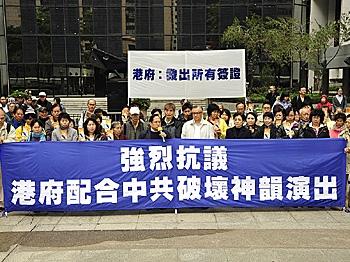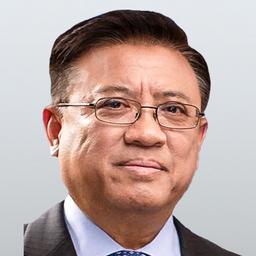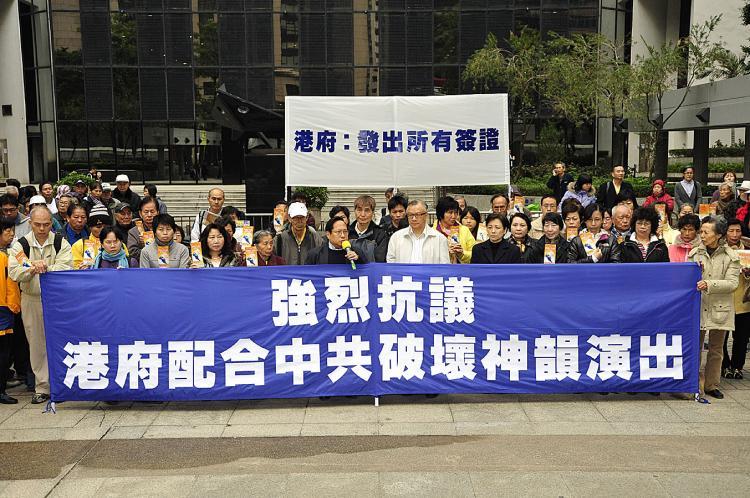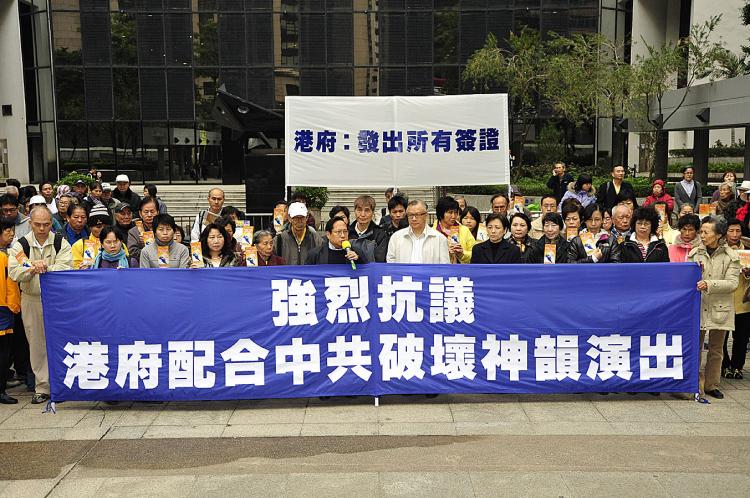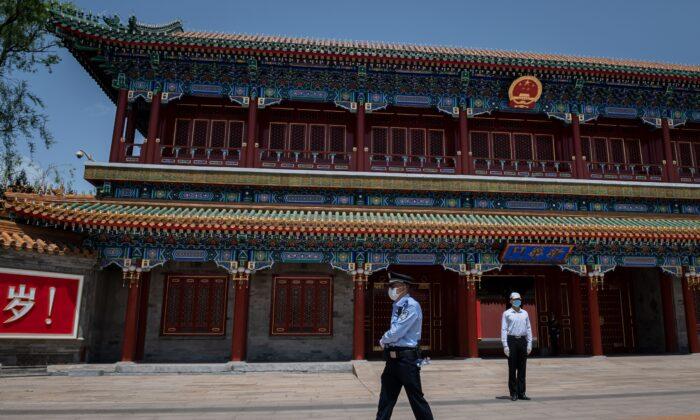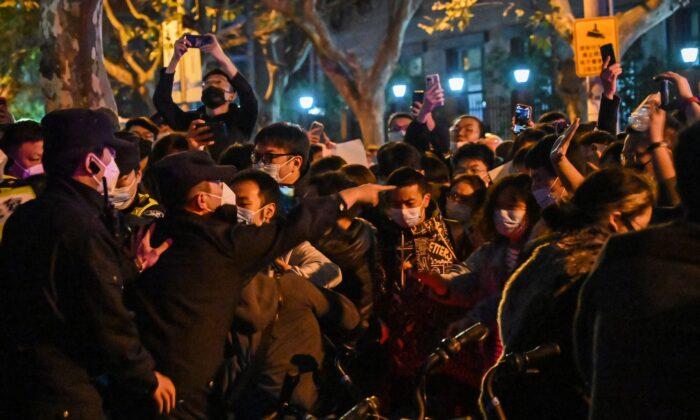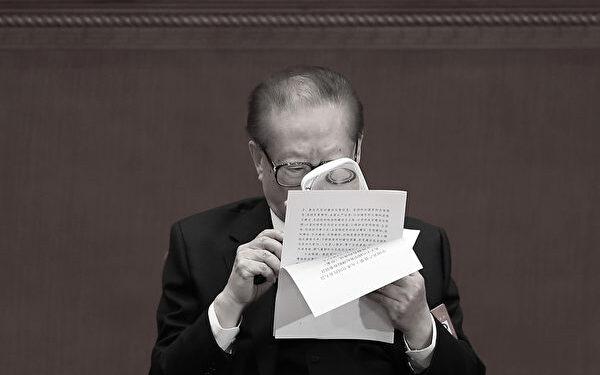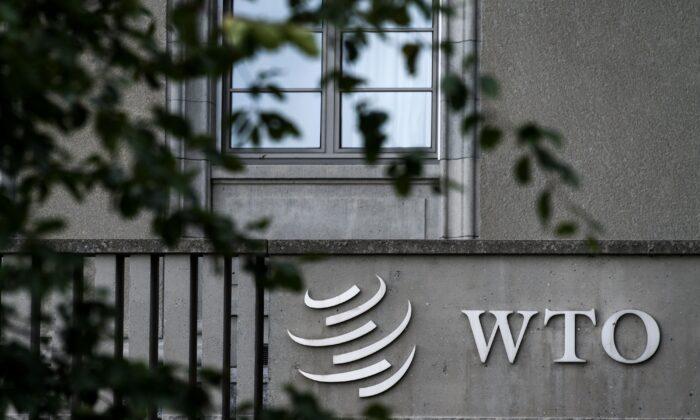Beginning Jan. 27, New York-based Shen Yun Performing Arts was scheduled to give seven sold-out shows in Hong Kong—the company’s first appearance in mainland China. The company, which says its performances seek to revive China’s traditional culture, was forced to cancel the shows when at the last minute the Hong Kong government refused to give visas to seven key production staff.
Another Shanghai
Whether this refusal violated Hong Kong’s laws, it certainly violated Hong Kong’s interests and its proud ethos of being a free city where laws are even-handedly administered. Hong Kong seems to be well on the way to becoming another Shanghai, a fate that I once thought would fall upon Hong Kong almost immediately after its hand over in 1997 to the Chinese regime.
Before 1949, Shanghai was one of the most prosperous cities in the Far East. After becoming one of China’s five open ports, Shanghai had become the center of finance, heavy and light industries, retailing, education, and entertainment in China. There was a time that the most successful businesses stayed in Shanghai, while those who found it hard to do business in Shanghai went to Hong Kong.
When the communists took over, however, business in Shanghai nose-dived and Shanghai lost her attraction to the world. In the meantime, Hong Kong took on the role Shanghai had played as a center of business and finally became one of the four Asian tigers. With the opening of China’s economy, Shanghai once more became China’s center for commerce, but without the freedom it had enjoyed before 1949.
I had expected that upon Hong Kong’s hand over, the regime would interfere with Hong Kong’s business and try to make Hong Kong more like the other cities of mainland China. Without freedom, Hong Kong is just another Shanghai, no matter how well the economy is developed. It has been 12 years since the hand over, and I hadn’t expected to see a free Hong Kong to survive for more than five years.
Example for Taiwan
Several factors have so far helped Hong Kong avoid being absorbed by the regime.
As one condition for the hand over, the regime had proposed not to make any changes to the One Country-Two Systems policy for 50 years. This proposal was not necessary—Hong Kong would have been handed over whether or not such a promise was made. The regime did so with an eye on Taiwan. It wanted to reassure the people and politicians of Taiwan that they should not be worried about a change in lifestyle once the island was unified with the mainland. So long as the regime believed that it still needed to persuade Taiwan, Hong Kong would have some space to resist the influence and efforts at control from the north.
Further strengthening Hong Kong’s position was the urgent need China had of foreign investment and management and financial expertise. In those fields, Hong Kong’s experience and reputation were irreplaceable.
Finally, the people of Hong Kong showed the willingness and determination to defend their freedom and democracy. To many people’s surprise, Hong Kong has been the place where the largest number of people have gathered each year to commemorate the June 4, 1989, Tiananmen Square Massacre.
On July 1, 2003, a half million Hong Kong residents took to the streets to protest against Article 23, which would have incorporated laws on subversion and sedition into Hong Kong local law. Critics believed the measure would have meant an end to the freedoms of speech, the press, and association in Hong Kong. The bill was withdrawn and the law was shelved indefinitely.
Party Culture
Of course, the regime hasn’t stopped trying to interfere with Hong Kong’s freedom, and many things have happened since the defeat of Article 23. The recent incident involving Shen Yun was simply the latest instance, and the blocking of Shen Yun had as much to do with the regime’s own vulnerabilities as with its designs on Hong Kong.
The CCP treated traditional Chinese culture as feudalism, one of three categories (along with capitalism and Soviet revisionism) considered to be enemies of the communist revolution and thus something that should be totally destroyed. That’s what happened during the first 30 years of the CCP’s rule, especially during the Cultural Revolution.
After destroying the traditional culture, the CCP established its own culture, the Party Culture, which has its roots in communist ideology, not Chinese tradition. But after the Cultural Revolution, communist ideology failed and with it the grounds for Party Culture. So, the regime has been picking up forms of traditional culture and using these borrowed elements to disguise and repackage Party Culture. The movie “Hero” by Zhang Yimou, the performances at the Beijing Olympics opening ceremony, and the Confucius Institutes that are opening in cities around the world, are all examples of this effort.
Once people recognize the true nature of the CCP’s so-called Chinese culture, however, that culture won’t be able to fool anyone. And if the fake Chinese culture is placed side-by-side with the real Chinese culture, the fake does not stand a chance. So the regime wants to make sure it has the exclusive right to portray Chinese culture.
Since Shen Yun first started performing in North America in 2007, the Chinese communist regime has never stopped trying to interfere with the show. The most recent incident was this month in Little Rock, Arkansas. The Chinese Consulate in Houston sent a 13-page unsigned and undated letter to a theater in Arkansas requesting that it deny Shen Yun Performing Arts’ application to rent the location. The letter was turned over to the FBI for further investigation.
Of course, if the Hong Kong government had been acting independently, it would have welcomed Shen Yun for all of the reasons that the Chinese regime wants to interfere with it. But Hong Kong was forced to represent the regime’s interests.
On the one hand, the factors that have restricted the regime’s treatment of Hong Kong are weakening. In general, the regime has felt that the Chinese economy has grown to such a level that the regime can now assert itself more. It also has more confidence in being able to handle the Taiwan issue, and believes that it no longer needs to offer “One Country Two Systems” to Taiwan. The example of an independent Hong Kong, then, is no longer needed.
On the other hand, the regime feels threatened by China’s authentic traditional semi-divine culture, which Shen Yun has been presenting to the world. The regime knows that when Shen Yun performs in Hong Kong, it will shake whatever hold the regime has on people’s hearts. It simply couldn’t take the risk.
